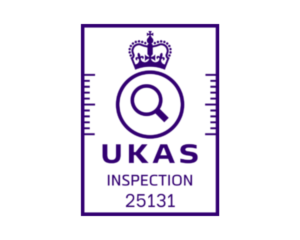Speaking in the House of Commons this afternoon chancellor Rishi Sunak made several announcements that are sure to impact construction. A summary is included below.
COVID-19 job support
Sunak confirmed the furlough scheme will be extended until the end of September with no changes to the terms. Employees will continue to receive 80% of their salary for hours not worked until the scheme ends. Employers will be asked to contribute 10% of this amount from July and 20% from August. Sunak said the furlough extension was to “accommodate even the most cautious view about the time it might take to exit the restrictions”.
The chancellor also confirmed that the self-employed support scheme (SEISS) would continue, with a fourth grant up to the end of April and a fifth grant available from May. Self-employed people whose turnover has fallen by 30% will receive the full 80% SEISS grant, but self-employed people whose turnover has fallen by less than 30% will receive a 30% grant. The eligibility for the grant has also been increased, with up to an extra 600,000 people able to apply. This is because the government is now allowing workers to submit their 2019-2020 and 2020-2021 self-assessment tax returns as evidence of their earnings.
Stamp duty holiday extended
Sunak confirmed that the stamp duty holiday on house purchases under £500,000 will continue until the 30 June in England and Ireland. It had been due to end at 31st March. This means that nearly nine out of 10 people buying a new home currently pay no stamp duty at all. The Scottish and Welsh governments have received additional funding to provide similar support.
The chancellor said that in order “to smooth the transition back to normal” the nil-rate band will be £250,000 until the end of September, with the usual level of £125,000 returning on 1st October. Sunak also confirmed a new mortgage guarantee scheme, whereby a number of the UK’s largest lenders will be offering 95% mortgages from next month.
Skills
The government confirmed that it will extend and increase the payments made to employers in England who hire new apprentices. Employers who hire a new apprentice between 1 April 2021 and 30 September 2021 will receive £3,000 per new hire, compared with £1,500 per new apprentice hire (or £2,000 for those aged 24 and under) under the previous scheme. This is in addition to the existing £1,000 payment the government provides for all new 16-18 year-old apprentices and those aged under 25 with an Education, Health and Care Plan, where that applies. The government also announced the introduction of a £7m fund from July 2021 to help employers in England set up and expand portable apprenticeships. This will enable people who need to work across multiple projects with different employers.
At the other end of the spectrum, and of equal significance to the sector, the government said it had plans to make several changes to its highly skilled migration policy. It said it would modernise the immigration sponsorship system to make it easier to use and that the government would publish a delivery roadmap in the summer. The budget papers also said the government would also introduce, by March 2022, an elite points-based visa.
Support for SMEs
A new Help to Grow scheme, which will help thousands of SMEs get “world class” management training according to Sunak, has also been confirmed. He said that UK business schools would offer a new “executive development” programme, with the government paying 90% of the cost. Developed in partnership with industry, the programme will combine a national curriculum delivered through business schools with practical case studies and mentoring from experienced business professionals. The programmes will run for 12 weeks.
Importantly for construction, where a majority of the supply chain is made up of SMEs, there will also be support for small businesses looking to develop digital skills with free training and a 50% discount on new “productivity enhancing software” worth up to £5,000 each. This scheme will be launched in the autumn.
Tax
The chancellor also confirmed that corporation tax paid on profits increased to 25% in April 2023, saying it was “fair and necessary” to ask businesses to contribute to the economic recovery. While this figure was higher than expected, with an increase from the current 19% to 23% having been trailed, Sunak said the UK would still have the lowest corporation tax rate in the G7 after the change. The chancellor added that only 10% of companies would have to pay the full 25% on profits, with the tax targeted towards larger, more profitable firms.
Image: Flickr








